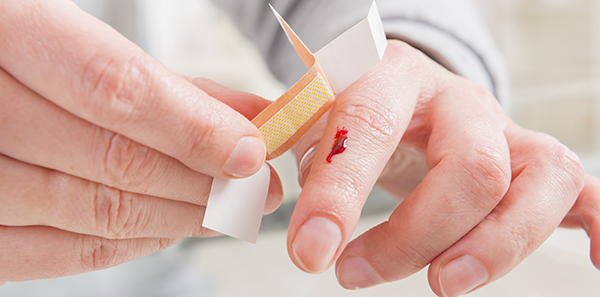
The immune system is responsible for maintaining and protecting the body’s internal balance against external attacks from things like bacteria, viruses, fungi and toxins. So it’s essential we take care of it and strengthen it to enjoy good health. But how does it protect us?
- The first line of defence is formed by skin and mucous membranes, including those of the gastrointestinal tract, the genitourinary tract, respiratory system, conjunctiva of the eye and so on.
- If a pathogen crosses these barriers, the second line of defence is natural or innate immunity (produced by genetic and physiological factors) which sets off an immediate non-specific response.
- The third line of defence, present in vertebrates, is an acquired and specific response developed by vaccination or natural infection, as the immune system responds to antigens to which it has already been exposed.
What should I do?
The main thing is to have a healthy life and a body that’s well prepared to tackle external attacks. To do this, you need to reinforce the defences of the skin and mucous membranes. Here are a few tips:
- Get a good night’s sleep
When we’re asleep, many of the body’s basic functions take place and molecules are created to fight infections. Studies show that people who don’t get enough sleep are more likely to get sick, especially after being exposed to the virus.
- Eat a balanced diet
It’s important to follow a healthy diet (fruits, vegetables, legumes and proteins) to ensure a good supply of vitamins and nutrients. The Mediterranean diet is one of the most beneficial as it prioritises unprocessed foods and avoids fried foods.
To improve digestion and absorb all nutrients, it’s essential to eat slowly, chew properly and avoid stress as much as possible during meals.
You should also reinforce your body’s microbiota with prebiotics (artichoke, banana, oatmeal, asparagus, milk, etc.) and probiotics (kefir, sauerkraut, miso, pickles, etc.) as they stimulate the growth of good bacteria.
- Get plenty of exercise
Regular exercise increases the circulation of immune cells in the blood, providing greater protection and making the immune system more effective and responsive.
- Stay hydrated
Water is vital for the body, as it makes up the lymphatic system, the transporter of immune cells.
- Avoid tobacco and alcohol
Alcohol can decrease the number of T and B lymphocytes, which are closely connected to the immune system. Nicotine also affects the immune system response and how it functions.
- Reduce stress
Too much stress weakens the immune system, as it stimulates the adrenal glands and affects the levels of cortisol, a hormone that regulates metabolism, decreases inflammation and contributes to the functioning of the immune system.
- Get vaccinated
This is the basis of acquired immunity and so it’s fundamental to enable the body to react to a range of external attacks.
Along with all this, it’s essential to maintain good levels of vitamin D, which promotes the antimicrobial response and reduces viral infection, and pay attention to autoimmune diseases that affect the immune system.
By taking care of your immune system, you can live healthier and be better protected from any infection or virus.
Juan Antonio Andreo
ASSSA Medical Manager












